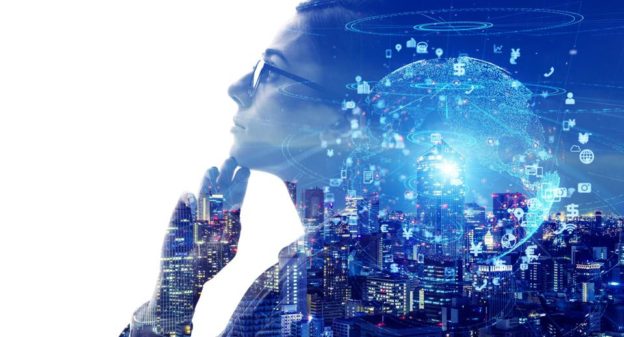There’s a lot of fear-mongering these days in the artificial intelligence (AI) space, especially as ChatGPT, Google’s Bard, and Stability AI take the world by storm. Many suggest that these conversational, generative and other AI models will fundamentally change how we live and work.
That may be true, but AI will not take our jobs or destroy the world, though that’s a concern shared by 37% of Americans. If we can embrace AI, it will free humanity of repetitive mental work, open new doors professionally and unleash people’s creativity. This massive technological advance will play a huge role in driving human progress and growing our economies.
Shift the way you think about AI
AI is to the human mind what the steam engine was to the human body. People feared that innovations like the steam engine might replace them. Instead, it dramatically increased productivity, the number of manufacturing jobs available, wages, and essentially created a larger middle class.
It’s the combination of humans and machines that makes us stronger. Research shows that as many as 90% of employees today are engaged in recurring and often boring tasks. AI can free us from mindless work and make us more efficient at our jobs.
We have never invented a successful technology that didn’t make people stronger. The invention of the car makes us move faster (and keeps us dry when it rains). The cell phone lets us talk to people thousands of miles away at the speed of light. Today, 93% of Americans rely on Google’s auto-correct. As a non-native speaker, this early AI tool has aided my English immensely, making me stronger.
Similarly, AI advancements are going to unlock a whole new world for the human race. Google CEO Sundar Pichai said it best at the 2018 World Economic Forum: “AI is probably the most important thing humanity has ever worked on. I think of it as something more profound than electricity or fire.” Today we can see he was obviously right. It’s time we embrace AI and let it help us achieve what was once thought to be impossible.
AI and the future of work
Historically, there has always been a “middle person” in the professional workplace. Right now, I’m thinking of the company that answered the phone and dispatched a taxi. Today, Uber and Lyft let you connect to drivers without that middle person. Actors and singers had to attend thousands of auditions to make a name for themselves in the industry. Now, anyone can use YouTube or TikTok to become famous without going through the traditional vetting process. The same may happen with NFTs — are we going to all these art galleries in the future?
All of these examples lead me to argue that today’s technology is only going to empower the average American to reach new heights. It will be a superpower for us professionally.
Dell Technologies predicts that 85% of the jobs in 2030 haven’t been invented yet. As noted by Deloitte, this means businesses and our current workforce must shift to a skills-based approach. Meaning that, in order to remain agile, competitive and ready for the careers of the future, we need to learn skills to command technologies like AI. Innovators recognize the benefits of these technologies in driving efficiency, productivity and profitability.
We already see the benefits. While GPT-4 and ChatGPT are still new, they have already proven beneficial for code developers and bring mainstream AI to nontechnical people.
But the potential is so much larger. For starters, imagine using a chatbot to respond to all of your work emails, or to read a long report and provide a summary with key points. Imagine a world where you don’t have to train people to do certain tasks but rather train them on how to use AI tools to do said tasks, like create PowerPoint presentations, deliver a quarterly analysis, or draft a blog post or thesis on research findings. ChatGPT has made it possible for anyone to turn their everyday words into a professional document that speaks the “language” of a medical doctor, lawyer or marketer — you name it.
Meanwhile, Stability AI is disrupting motion picture production and professions. By synthesizing backgrounds, faces, costumes and other assets, it eliminates the need for a crew to spend millions to go to New York City to film. Instead, they can synthesize New York City via AI. Imagine a world where producing a Game of Thrones episode, one of my favorite shows, wouldn’t cost upwards of $20 million and, instead, could be done at the kitchen table.
AI is going to completely change our education system, and it is going to democratize professions that have previously been hard to reach. The process of becoming a professional, and what professionals do, will look very different than they do today. As with the dramatic decline in cursive writing, with AI, there will come a day when our children no longer need to be taught how to spell, compose an essay, or drive a car, for that matter. Math, for example, will remain important, but the professional skills of the future won’t be about how to program a computer; but how to train a computer to get to a correct answer or outcome.
The possibilities of AI
As humans, we have always craved progress. We are where we are today because we have been open-minded and have an innate learning-first attitude that has enabled us to learn and adapt to new situations and ways of being. AI realizes a level of efficiency and proficiency that is completely unmatched. We must be open-minded to the endless possibilities it may present in the coming years. Yes, it will change how we live and work, but fear not, it will be in the most positive and profound ways.
Sebastian Thrun is chairman and cofounder of Udacity.
https://venturebeat.com/ai/ai-will-unlock-a-new-level-of-human-potential/amp/





